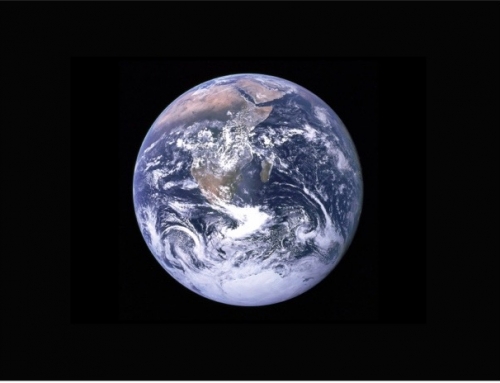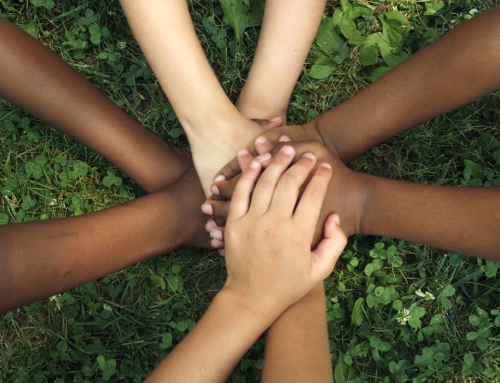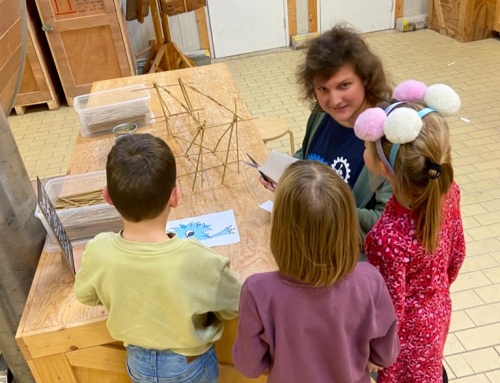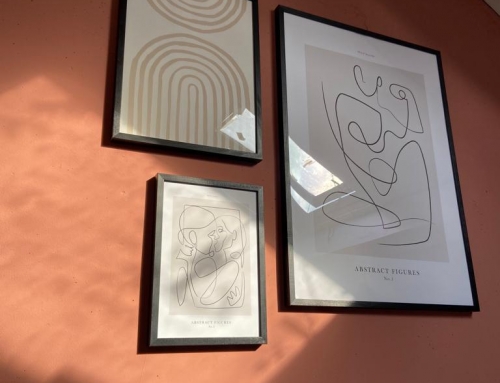Transformative Social Innovation
Nowadays, our society is extremely complex, everything is constantly changing and it changes fast. Because of this complex society, our world has to deal with many complex issues, problems or challenges. Issues that can be social, environmental, economic, cultural, etc. We cannot solve them in a week or with one solution because the cause and effect can only be perceived in retrospect, they are simply too complex. That is why there is a need for transformative social innovation. TSI is about improving the social interaction between people in such a way that they embrace or come up with new ideas, perspectives or solutions. We talk about sustainable innovations that tackle the complex challenges in our society (Performatory, 2020).
My name is Linn and I want to become a transformative social innovator in the educational domain, transformative social innovators come with new approaches to tackle complex challenges. I believe that design thinking is a perfect tool to deal with the complex challenges in our educational domain. In my opinion, this is possible by bringing people together, finding the common ground, focussing on the positives and building relationships.
Interests
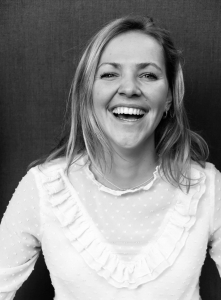
As a transformative social innovator, I am interested in different topics and domains. I am interested in the connections between theme sports and physical activity; intellectually disabled people; and our participation society. Within these interests, I created the perspective that sport is good for people with an intellectual disability and that sports can help them to function better in our participation society. I created this perspective by doing research for the Dutch Royal Hockey Association (KNHB), where I researched the needs and demands of intellectually disabled hockey players in order so that they keep playing hockey with more fun. In my perspective, our complex society is even a bigger problem for this target group.
The research for the KNHB also resulted in some new interests: the power of relationships, focusing on the strengths of people instead of the weaknesses, putting the ones where it is about in the centre and the power of language, communication and listening. It made me realise that I am not just interested in intellectually disabled people or sports, I am interested in empowering target groups so that they can function better in society or in organisations. Instead of working with a top-down structure we have to work with a structure which is more bottom-up. If we want to evoke change, we have to listen to the needs and demands of the people where it is about and put them in the middle of a process.
The internship at Breda University of Applied Sciences (BUas) and the project I did for the neighbourhood Boeimeer, confirmed this human-centric approach. During this internship, I started building a community at Innovation Square. A community in which students, lectures and companies come together. I had to deal with many perspectives, brought people together and faced the complexity of the educational domain. A system where the participants would like to work bottom-up but were the structure is still top-down. This complexity is called the fight between lifeworld and system world (Levine, 2017).
During the project for the neighbourhood Boeimeer, I brought different stakeholder together to deal with the environmental and planning act. All stakeholders had different powers and interests. The stakeholders with less power felt unheard and unimportant. Action research was necessary to empower these stakeholders and to show the value of collaboration.
Professional view
But what does this mean for me as a professional? As mentioned earlier, I believe design thinking is necessary for processes like these. With design thinking, we are able to bring different people with different perspectives together. Bringing those people together results in a common ground and hopefully behavioural changes. It is about co-creation, so instead of doing things for each other, we need to do it with each other. If a group does feel the urgency of changing, a solution will never be sustainable. During several projects, I found out that you need to involve all participants as soon as possible. In our complex society, different types of research are mandatory. We cannot solve complex challenges by just doing traditional research. There is a need for researchers who dare to do it different, design researchers or action researchers. People who think in solutions and the power of participants. (designthinkersacademy, 2019)
The internship at BUas showed that the educational domain also faces many complex challenges. Students form a difficult target group which is indefinable because they all have different backgrounds, needs and wants; the educational system has a top-down structure, while there is need for bottom-up; and there is not much room for change, while sometimes change is needed. From a transformative social innovator perspective, tackling these complex challenges is possible by using design thinking, action research, relationship building, focussing on the strengths and listening to the needs and wants!
What now?
I want to work in the educational domain, I want to deal with the different target groups within this domain. Empower them and co-create with them. I believe by using design thinking, appreciative inquiry and action research, we are able to deal with complexity.
Are you interested in my approach and do you feel there is a need for it in your company, please mail me so that we can see what we can mean for each other!

